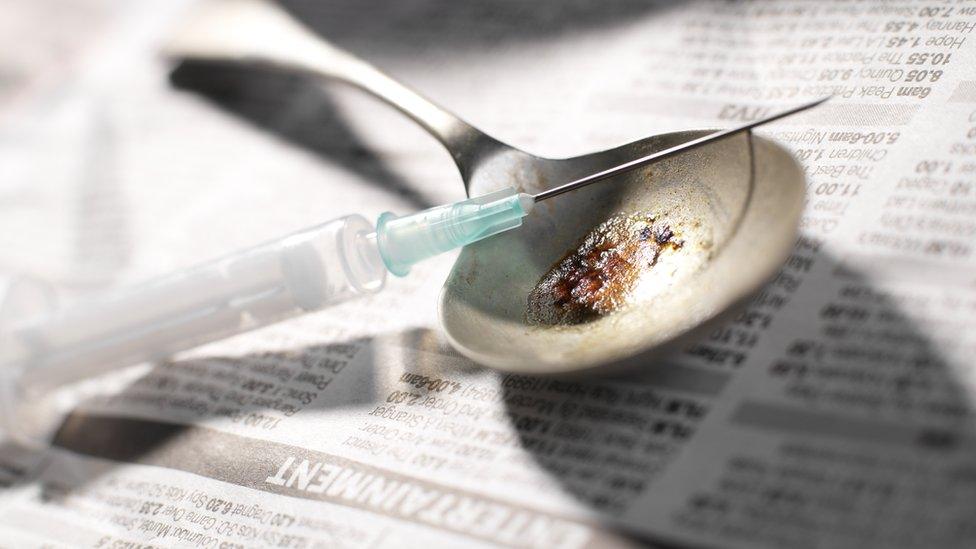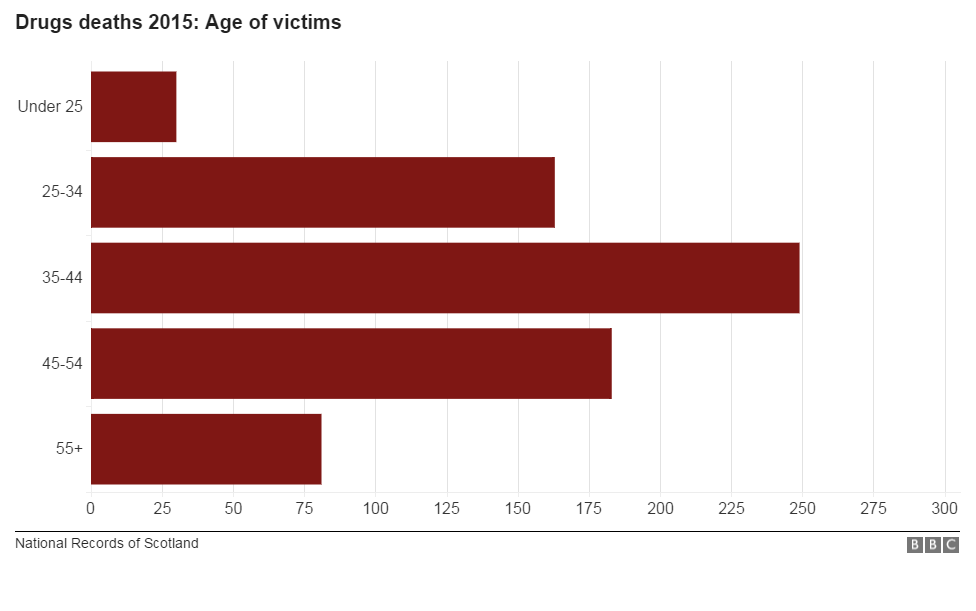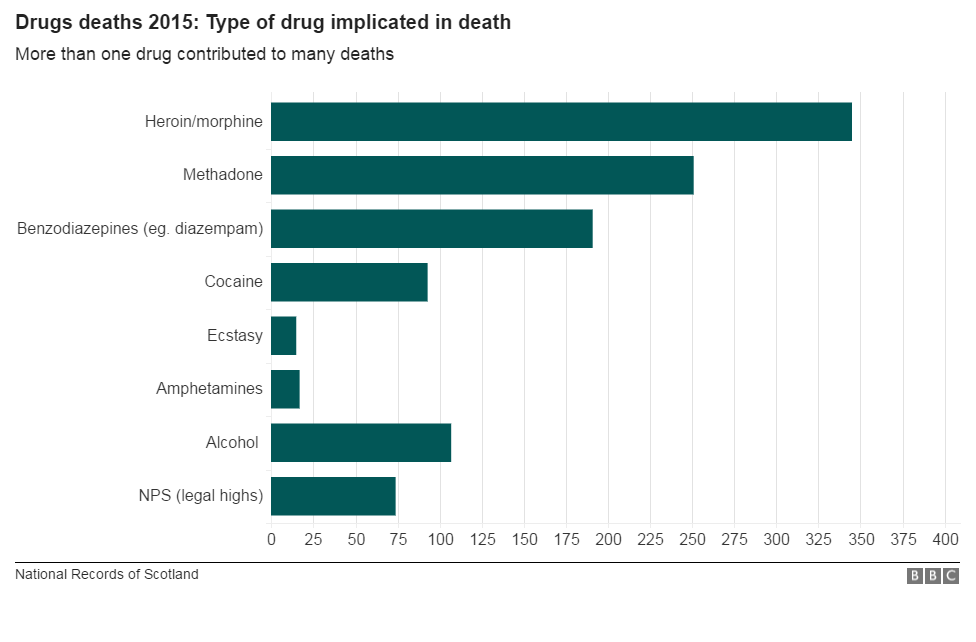Drug deaths in Scotland increased by 15% in 2015
- Published

Drugs deaths in Scotland hit a record high in 2015, official statistics have revealed.
A total of 706 people died as a result of drug abuse last year - the largest number ever recorded, according to a report by the National Records of Scotland, external.
It represents a 15% increase on the figure for 2014, when 613 people died.
The number of drug deaths in Scotland have been steadily increasing, external since 1995, when 426 deaths were recorded.
The report also reveals the effect of drug abuse on older users - almost three-quarters (73%) of deaths were among people aged over 35.
Other findings include:
Drug-related deaths of young people (aged under 24) fell from 47 in 2014 to 30 in 2015;
Heroin and morphine were implicated in the deaths of almost half (49%) of drug users - more than ever before;
New psychoactive substances (NPS) - formally known as "legal highs" - potentially contributed to 74 deaths, up from 62 in 2014;
Men made up 69% of drugs deaths in 2015;
Almost a third of all drugs deaths (31%) occurred in the Greater Glasgow and Clyde health board area;
The Scottish government said the health risks posed by older drug users was a "key challenge" for Scotland.

Aileen Campbell, the minister for public health, said ageing drug users were experiencing increasingly poor health.
"This is a legacy of Scotland's drug misuse which stretches back decades," she added.
"To address this we have funded research to investigate the issues associated with older drug users through the Scottish Drugs Forum.
"We have also achieved significant reductions in treatment times for those needing treatment for their drug problem.
"We remain committed to tackling the scourge of illegal drugs and the damage they do to our communities, and to support those who are struggling with addiction."
'Demands attention'
She added that drug use is falling in Scotland, with the number of young people taking drugs at its lowest level in a decade.
However a spokeswoman for Addaction Scotland said the group was "deeply concerned" about drugs death trends.
She highlighted a reduction in the number of fixed site needle exchanges, which are often users' entry point for treatment.
She added: "The situation of increasing drug related deaths is not helped by the uncertainty of current and future funding of services.
"Across Addaction we are concerned when essential services like ours are often being asked to make efficiency savings of around 20%."

Dave Liddell, the director of the Scottish Drugs Forum, said the statistics were a "wakeup call to redouble efforts to reduce this tragic and largely preventable loss of life."
Earlier this year a new group, the Partnership for Action on Drugs in Scotland (PADS) was set up to reduce problem drug use.
It is chaired by the minister for public health and includes representatives of agencies including Harms Group.
Harms Group chairman Prof Roy Robertson said the drugs death statistics "represent a situation which demands attention".
He said: "The time has undoubtedly come for action at all levels. New resources are required and ownership of this national problem at a high level must now be seen."
Community benefit
Health professionals and drug charities have called for supervised heroin consumption to be approved to allow users could receive drugs safely.
One answer being proposed by NHS Greater Glasgow and Clyde is a pilot service for heroin-assisted treatment in Glasgow city centre.
A report in June 2016, external from NHSGGC, "Taking away the chaos," suggested injectable, pharmaceutical-grade heroin would be administered in a specialist outpatient facility operating under clinical supervision with strict safeguards.
The health board argued such a move would benefit both users and the wider community.
The number of drug-acquired HIV infections in Glasgow rose to 47 in 2015, from a normal annual average of 10 - and is expected to top 60 in 2016.
And it said public injecting in the city centre, in closes, lanes, car parks and public toilets causes a further risk.